How To Increase Nitrogen In Garden Soil
Your garden has been growing for years, but your plants seem to be struggling more than you used to. Or maybe you've planted veggies in your usual spot this year, but they don't seem to be thriving as they have in years past. If these scenarios sound familiar, you might be facing a nitrogen shortage in your soil.
Nitrogen is a chemical element that's essential in gardening. It encourages plant growth and helps provide foliage with its green coloring. Healthy soil contains and requires this crucial nutrient to thrive.
Have you ever wondered what the numbers on a bottle or pack of fertilizer mean? In fertilizers, NPK refers to the three most crucial macronutrients required by plants: nitrogen, phosphorus, and potassium.
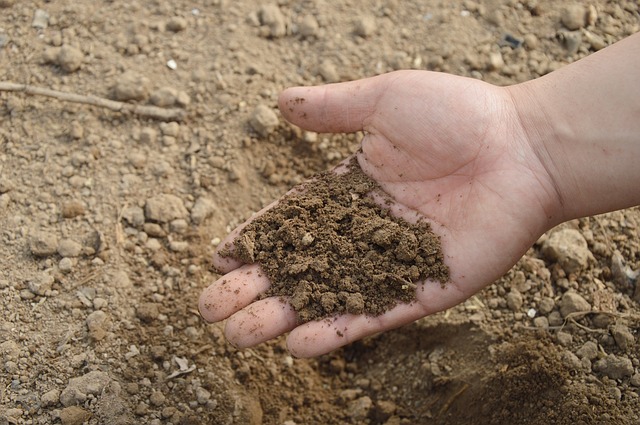
When we add fertilizer, we're replacing these nutrients in the soil. As they grow, your plants draw out nutrients that aren't being replenished. Plants need these nutrients to survive, so unless you put back what the plants are taking out, your veggies will begin to starve. The bottom line is that without nitrogen, your plants can't grow.
That said, not all vegetables and plants require the same amount of nitrogen, so you can't just feed and forget. Different plants have different needs. Some plants, like tomatoes, are heavy feeders. While others, like lettuce, are light feeders. Some plants even put some nitrogen back into the soil.
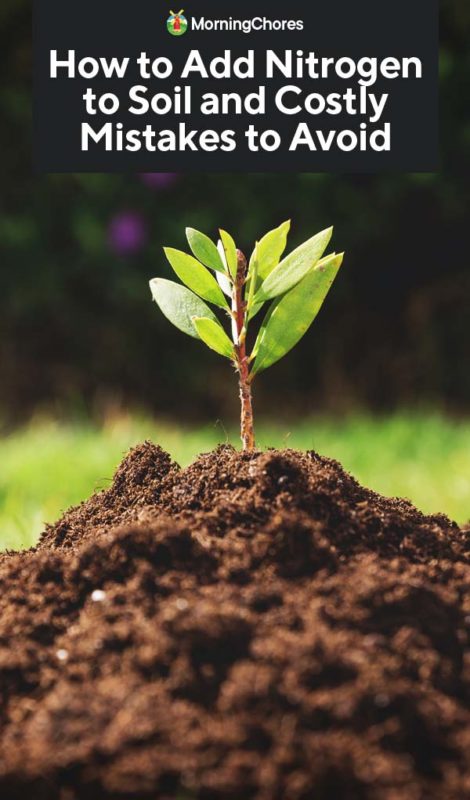
What are the Signs of a Deficiency?
Because plants take up nutrients from the earth, it's essential to replenish the soil's supply. Your garden won't thrive if you don't replace the things that are being taken out.
Typically, you need to add nitrogen to the soil if there is a deficiency or your plants are hungry and require a lot of nitrogen to flourish. So how can you spot a deficiency? A typical sign is stunted growth or yellowing leaves, but these may also be a sign of disease or pest infestation.
Even experienced gardeners may have trouble diagnosing potential nutrient deficiencies. It's best not to play a guessing game. Soil testing should be your first step before addressing any nutrient imbalance in the soil.
What Happens When You Have Too Much Nitrogen?
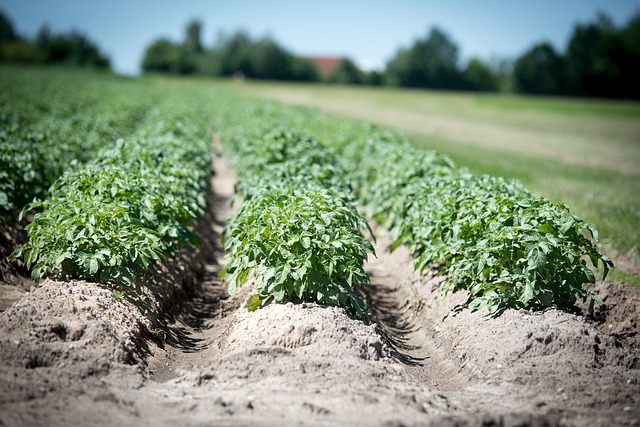
Why not add as much nitrogen as possible? The more, the better, right? If it encourages growth, large quantities should make your plants big and strong! Unfortunately, that's not the case. Too much nitrogen may leave you with big leafy plants that won't bear any vegetables or fruit.
Potatoes and tomatoes grown in soil abundant in nitrogen, for instance, will produce few taters and tomatoes but will have an abundance of leafy green growth.
Another reason to avoid adding too much nitrogen to your soil? Soil contamination may occur if excess nitrogen is present. The excess nitrogen may leach into and pollute nearby water sources.
How to Add Nitrogen to Soil
Before you start adding nitrogen to the soil, perform a soil test. If you have a lot of nitrogen at the start of the gardening season, there's no point in adding a ton more. Know your soil's composition before adding any fertilizer. Once that's done you can get to adjusting your nitrogen levels.
Fertilizer
Fertilizer is the most obvious way to add nitrogen to your soil. Choose an appropriate fertilizer with the correct NPK ratio for your needs. There are a variety of synthetic fertilizer options with high nitrogen concentrations, but compost is an excellent non-synthetic alternative that provides a slow release of nutrients. Regularly amending the earth with compost helps to build healthy soil, which in turn will experience fewer incidences of deficiency. It's a win-win situation.
Nitrogen-fixing crops

These are crops like beans and legumes. Instead of taking up nitrogen they fix the nutrients in the soil. Grow beans and legumes in areas where you previously grew nitrogen-hungry plants the year before. Avoid fertilizing areas where bean crops were grown in previous years since there's no need for the added nitrogen.
Cover crops
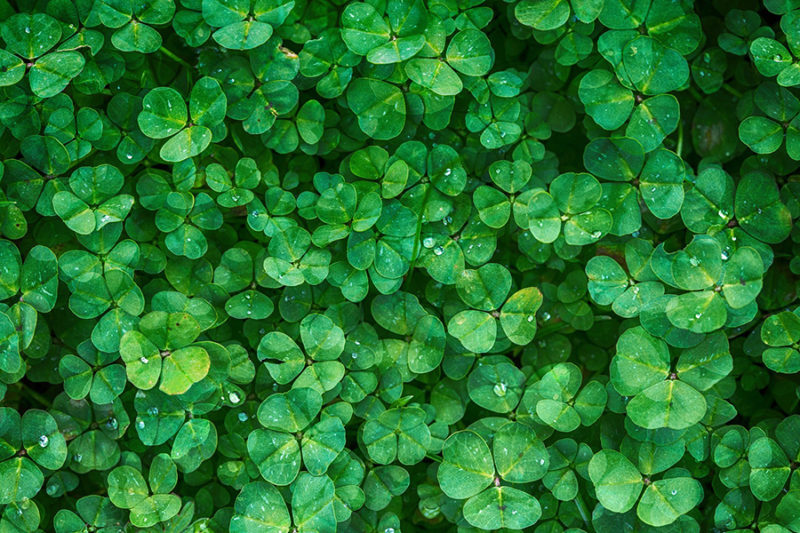
Crops like clover are also nitrogen fixers. The difference is that you're not growing them to harvest. Usually, you plant at the start of the season or in the off-season. The downside of this method for home gardeners is that it takes significant effort to remove cover crops and begin planting. If you're thinking of growing cover crops to suppress weed growth, consider plastic mulch to do the job instead.
Grass clippings
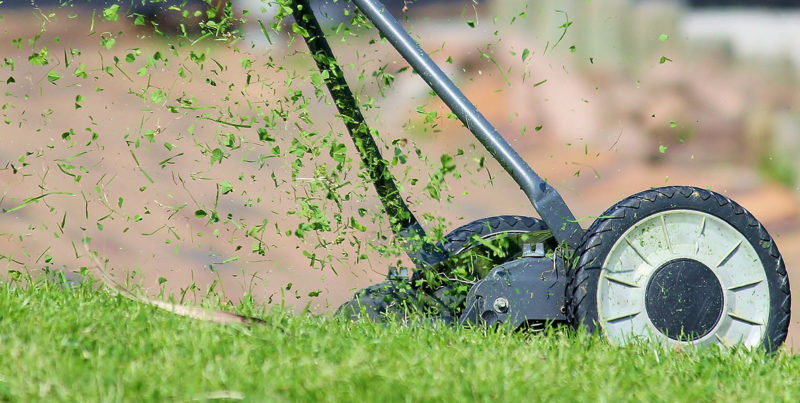
If your lawn is deficient in nitrogen, grass clippings are an excellent way to address the problem. When you mow your lawn, let the grass clippings – so long as they are an inch or shorter – return to your lawn. They will gradually increase nitrogen levels over time.
You can also sprinkle glass clippings around your garden as a mulch that can add a little bit of nitrogen.
Busting Myths About Nitrogen
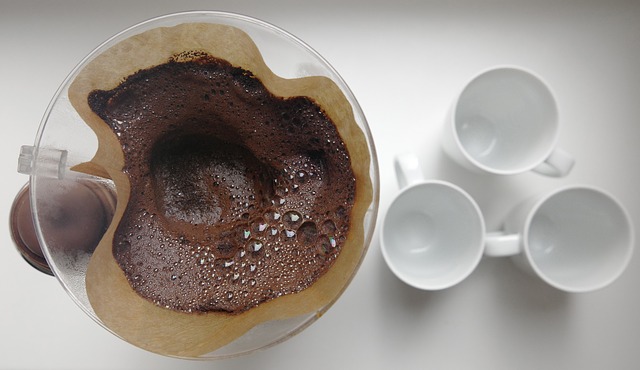
There are plenty of natural fertilizer options like coffee grounds and egg shells floating on the internet, but are they all useful sources of nitrogen? Let's take a look at the most popular suggestions:
Coffee grounds
The leftover grounds from your coffee are an excellent compost additive but are relatively useless and potentially harmful when added directly to garden soil. If you want to re-use your coffee grounds, add them to your compost first.
Fish emulsion
Fish emulsion is another natural soil amendment, but it contains low concentrations of nutrients, so it's not necessarily an ideal candidate for dealing with a severe deficiency. It's an excellent option for smaller jobs like feeding seedlings and transplants, though.
Egg shells
Eggshells are a popular kitchen scrap that people love to throw in the garden. I prefer to toss them into the compost pile, but is there any use to adding them to the garden to address a nitrogen imbalance? Sure, egg shells do contain slight traces of nitrogen, but the small amounts are negligible and won't make much of a difference if you're experiencing a severe nitrogen shortage. You can use them to ward off pests, however. Crushed eggshells keep slugs and snails from getting too close to your greens and nibbling them until there's nothing left.
Dog or human waste
Have you heard of this option for adding nitrogen to the soil? Don't even think about it. First, any animal waste should be composted before use in the garden, and it's a terrible idea to stick your own or your dog's feces into the compost. You're likely to spread disease and contaminate your food supply. You may be able to add dog waste to your city's brown bin, but find out if it's allowed before doing so.
Urine
You might have heard that urine is an excellent source of nitrogen. I'd suggest saving your pee for your next outdoor adventure. If you're really feeling wild, you can enjoy it Bear Grylls style. All kidding aside, don't start collecting pee jars for your garden. Not only is it gross, but it's also a lot of effort for little payback. Concentrated urine can kill your plants. I'd advise against it, especially since not all urine is necessarily free of bacteria and viruses.
The bottom line is while most of these options may alter your soil slightly, none of them is the answer for how to add nitrogen to soil. Most natural nutrient sources are most effective when added to compost and then worked into the soil.
Be Cautious with Fertilizer
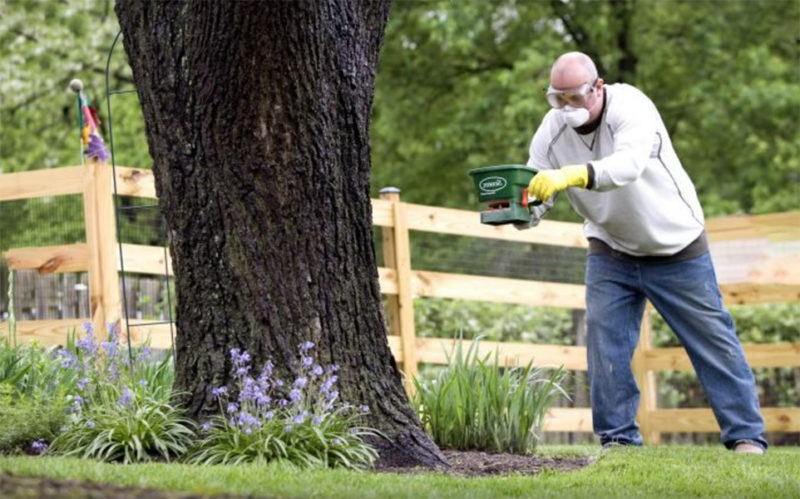
Take care when attempting to alter the nutrient balance of your soil. Throwing things out of whack may cause pH imbalances, pollution of nearby water sources, and if your soil isn't healthy, you're likely to experience high incidences of pest and disease.
Adding excess nitrogen in an effort to curtail future deficiency is a poor choice, too. Some plants respond poorly to high levels of nitrogen and won't produce fruit. It's also a wasteful endeavor. In some cases, another imbalance may lead to an inability for plants to absorb the nutrient. If the pH of your soil is off, for instance, plants may not be able to access nitrogen in the soil, so adding more isn't going to solve the problem.
Are you facing a nitrogen challenge in your garden this year? Let us know what option you choose for addressing it and how it works out.

Was this article helpful?
Yes No
How To Increase Nitrogen In Garden Soil
Source: https://morningchores.com/how-to-add-nitrogen-to-soil/
Posted by: manningmervagands1939.blogspot.com

0 Response to "How To Increase Nitrogen In Garden Soil"
Post a Comment